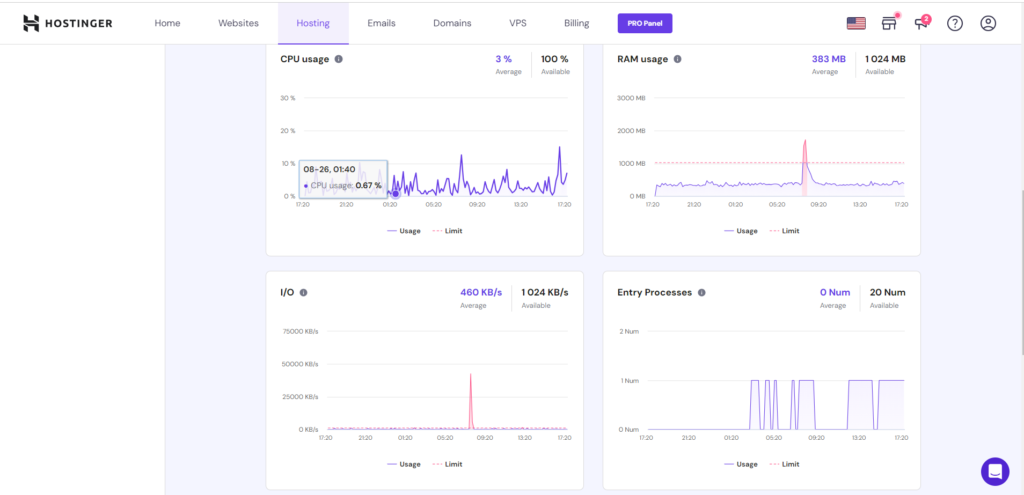What is Web Hosting and Why Do I Need It?
Today you will know What is Web Hosting and Why Do I Need It, In the vast realm of the internet, web hosting serves as the foundation for your online presence. Whether you’re a budding entrepreneur, a blogger, or a business giant, understanding what web hosting is and why it’s essential can make a world of difference. This article will guide you through the intricacies of web hosting, unraveling its significance in the digital landscape.
Introduction:
Imagine the internet as a bustling city, and your website as a storefront nestled within it. Web hosting can be likened to the land on which your storefront stands—a virtual space that ensures your website is accessible to visitors worldwide.
Exploring Web Hosting:
2.1 The Basics of Web Hosting:
At its core, web hosting is a service that allows individuals and organizations to make their websites accessible via the World Wide Web. Websites are comprised of various files, including HTML documents, images, videos, and more. These files need a storage space and a means to connect to the internet, which is precisely what web hosting provides.
2.2 Types of Web Hosting:
2.2.1 Shared Hosting:
Shared hosting is akin to renting an apartment in a building. Multiple tenants (websites) share the same resources on a single server. It’s cost-effective and suitable for small-scale websites.
2.2.2 VPS Hosting:
Virtual Private Server (VPS) hosting offers more privacy and control. It’s like owning a condominium where you have dedicated resources within a shared environment.
2.2.3 Dedicated Hosting:
Having a dedicated server is like having a whole house. You have the server all to yourself, which translates to enhanced performance and flexibility.
2.2.4 Cloud Hosting:
Cloud hosting distributes your website’s resources across multiple virtual servers, ensuring reliability and scalability. It’s like owning a home that can expand or shrink as needed.
The Role of Web Hosting:
Web hosting plays a pivotal role in ensuring your website is available 24/7 to anyone with an internet connection. It’s the invisible force that keeps your digital storefront’s doors open, allowing customers to browse, interact, and transact.
Key Features to Consider:

4.1 Bandwidth and Storage:
Think of bandwidth as the road that leads to your website, and storage as the space your files occupy. Sufficient bandwidth ensures smooth traffic, while ample storage accommodates all your website’s content.

4.2 Uptime Reliability:
Uptime is the measure of time your website remains operational. Reliable web hosting providers guarantee high uptime percentages, ensuring your website is accessible virtually all the time.

4.3 Security Measures:
A secure web hosting environment protects your website and its data from cyber threats. Look for hosting providers that offer SSL certificates, firewalls, and regular security updates.
4.4 Customer Support:
Quality customer support can be a lifesaver during technical glitches. Choose a web hosting provider with responsive customer support to troubleshoot issues promptly.
Advantages of Reliable Web Hosting:
Reliable web hosting offers benefits such as faster loading times, seamless user experiences, enhanced security, and the ability to handle increased traffic. The success of your online presence is influenced by all of these elements.
Choosing the Right Web Hosting Provider?
6.1 Assessing Your Needs:
Determine your website’s requirements, including the type of content you’ll feature and the expected volume of traffic. This assessment will guide you toward the most suitable hosting option.
6.2 Evaluating Hosting Options:
Research and compare various hosting providers based on factors like pricing, features, scalability, and customer reviews. This guarantees that you make an intelligent decision.
Setting Up Your Website:
7.1 Domain Registration:
Pick a memorable domain name that is consistent with your brand. Register the domain and ensure it’s linked to your web hosting account.

7.2 Nameservers and DNS:
Configure your domain’s nameservers to point to your hosting provider’s servers. This step ensures that when someone enters your domain in their browser, they land on your website.
Web Hosting Tips for Beginners:
Top 7 Hosting Provider
8.1 Regular Backups:
Frequently back up your website’s data to prevent loss in case of unexpected events. Many web hosts provide automated backup options.
8.2 Software Updates:
Keep your website’s software, including content management systems and plugins, up to date. This minimizes security vulnerabilities.
8.3 Scalability:
Choose a hosting provider that allows easy scalability as your website grows. This ensures your hosting resources can adapt to increased traffic.
Enhancing Website Performance:
9.1 Content Delivery Networks (CDNs):
CDNs distribute your website’s content across servers worldwide, reducing load times for users regardless of their geographical location.
9.2 Caching Mechanisms:
Caching stores frequently accessed data, allowing your website to load faster upon subsequent visits. Utilize browser and server-side caching for optimal results.
The Future of Web Hosting:
10.1 Green Hosting:
As environmental concerns rise, green hosting aims to minimize the carbon footprint of data centers, contributing to a more sustainable online ecosystem.
10.2 AI-Driven Hosting Solutions:
Artificial Intelligence is poised to revolutionize web hosting with predictive analytics, automated issue resolution, and personalized user experiences.
Conclusion:
Web hosting is the bedrock on which the internet is built. From personal blogs to global enterprises, every online venture relies on dependable hosting to thrive. So, whether you’re launching your first website or expanding your digital empire, understanding web hosting is the key to a successful online presence.
